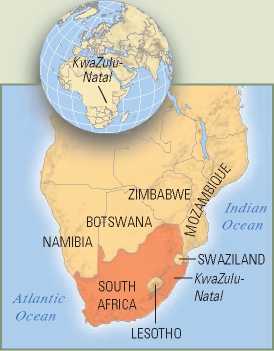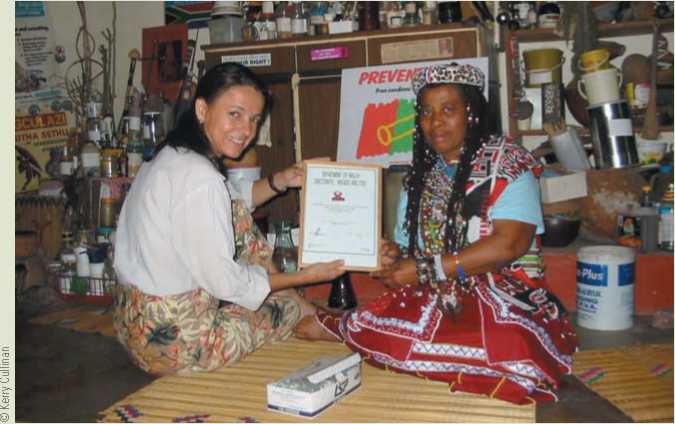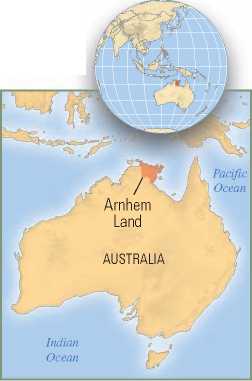All anthropologists think about whether their culture may have shaped the scientific questions they ask. In so doing, they rely heavily on a technique that has been successful in other disciplines: They immerse themselves in the data to the fullest extent possible. In the process, anthropologists become so thoroughly familiar with even the smallest details that they begin to recognize underlying patterns in the data, many of which might have been overlooked. Recognition of such patterns enables the anthropologist to frame meaningful hypotheses, which then may be subjected to further testing or validation in the field. Within anthropology, fieldwork provides additional rigor to the concept of total immersion in the data.
While fieldwork was introduced above in connection with cultural anthropology, it is characteristic of all the anthropological subdisciplines. Archaeologists and pa-leoanthropologists excavate in the field. A biological anthropologist interested in the effects of globalization on nutrition and growth will live in the field among a community of people to study this question. A primatologist might live among a group of chimpanzees or baboons just as a linguist would study the language of a culture by living in that community. Fieldwork, being fully immersed in another culture, challenges the anthropologist to be aware of the ways that cultural factors influence the research questions. Anthropological researchers monitor themselves by constantly checking their own biases and assumptions as they work; they present these self-reflections along with their observations, a practice known as reflexivity.
The validity or the reliability of a researcher’s conclusions is established through the replication of observations and/or experiments by another researcher. Thus it becomes obvious if one’s colleague has “gotten it right.” But traditional validation by others is uniquely challenging in anthropology because observational access is often limited. Contact with a particular research site can be constrained by a number of factors. Difficulties of travel, obtaining permits, insufficient funding, or other conditions can interfere with access; also, what may be observed in a certain context at a certain time may not be observable at others. Thus one researcher cannot easily confirm the reliability or completeness of another’s account. For this reason, anthropologists bear a special responsibility for accurate reporting. In the final research report, she or he must be clear about several basic issues: Why was a particular location selected as a research site? What were the research objectives? What were the local conditions during fieldwork? Which local individuals played a role in conducting the research? How were the data collected and recorded? How did the researcher check his or her own biases? Without such background information, it is difficult for others to judge the validity of the account and the soundness of the researcher’s conclusions.
On a personal level, fieldwork requires the researcher to step out of his or her cultural comfort zone into a world that is unfamiliar and sometimes unsettling. Anthropologists in the field are likely to face a host of chal-lenges—physical, social, mental, political, and ethical. They may have to deal with the physical challenge of adjusting to unaccustomed food, climate, and hygiene conditions. Typically, anthropologists in the field struggle with such mental challenges as being lonely, feeling like a perpetual outsider, being socially clumsy and clueless in their new cultural setting, and having to be alert around the clock because anything that is happening or being said may be significant to their research. Political challenges include the possibility of unwittingly letting oneself be used by factions within the community, or being viewed with suspicion by government authorities who may suspect the anthropologist is a spy. And there are ethical dilemmas as well: What does the anthropologist do if faced with a cultural practice he or she finds troubling, such as female circumcision? How does one deal with demands for food supplies and/or medicine? And is the fieldworker ever justified in using deception to gain vital information? Many such ethical questions arise in anthropological fieldwork.
At the same time, fieldwork often leads to tangible and meaningful personal, professional, and social rewards, ranging from lasting friendships to vital knowledge and insights concerning the human condition that make positive contributions to people’s lives. Something of the meaning of anthropological fieldwork—its usefulness and its impact on researcher and subject—is conveyed in the following Original Study by Suzanne Leclerc-Madlala, an anthropologist who left her familiar New England surroundings about twenty-five years ago to do AIDS research among
Zulu-speaking people in South Africa. Her research interest has changed the course of her own life, not to mention the lives of individuals who have AIDS/HIV and the type of treatment they receive.

Original Study
Fighting HIV/AIDS in Africa: Traditional Healers on the Front Line
By Suzanne Leclerc-Madlala


Medical anthropologist Suzanne Leclerc-Madlala visits with “Doctor” Koloko in KwaZulu-Natal, South Africa. This Zulu traditional healer proudly displays her official AIDS training certificate.
In the 1980s, as a North American anthropology graduate student at George Washington University, I met and married a Zulu-speaking student from South Africa. It was the height of apartheid, and upon moving to that country I was classified as "honorary black” and forced to live in a segregated township with my husband. The AIDS epidemic was in its
Infancy, but it was clear from the start that an anthropological understanding of how people perceive and engage with this disease would be crucial for developing interventions. I wanted to learn all that I could to make a difference, and this culminated in earning a PhD from the University of Natal on the cultural construction of AIDS among the Zulu. The HIV/AIDS pandemic in Africa became my professional passion.
Faced with overwhelming global health-care needs, the World Health Organization passed a series of resolutions in the 1970s promoting collaboration between traditional and modern medicine. Such moves held a special relevance for Africa where traditional healers typically outnumber practitioners of modern medicine by a ratio of 100 to 1 or more. Given Africa's disproportionate burden of disease, supporting partnership efforts with traditional healers makes sense.
But what sounds sensible today was once considered absurd, even heretical. For centuries Westerners generally viewed traditional healing as a whole lot of primitive mumbo jumbo practiced by witchdoctors with demonic powers who perpetuated superstition. Yet, its practice survived. Today, as the African continent grapples with an HIV/AIDS epidemic of crisis proportion, millions of sick people who are either too poor or too distant to access modern health care are proving that traditional healers are an invaluable resource in the fight against AIDS.
Of the world's estimated 40 million people currently infected by HIV, 70 percent live in sub-Saharan Africa, and the vast majority of children left orphaned by AIDS are African. From the 1980s onward, as Africa became synonymous with the rapid spread of HiV/AIDS, a number of prevention programs involved traditional healers. My initial research in South Africa's KwaZulu-Natal province— where it is estimated that 36 percent of the population is HIV infected—revealed that traditional Zulu healers were regularly consulted for the treatment of sexually transmitted disease (STD). I found that such diseases, along with HIV/AIDS, were usually attributed to transgressions of taboos related to birth, pregnancy, marriage, and death. Moreover, these diseases were often understood within a framework of pollution and contagion, and like most serious illnesses, ultimately believed to have their causal roots in witchcraft.
In the course of my research, I investigated a pioneer program in STD and HIV education for traditional healers in the province. The program aimed to provide basic biomedical knowledge about the various modes of disease transmission, the means available for prevention, the diagnosing of symptoms, the keeping of records, and the making of patient referrals to local clinics and hospitals.
Interviews with the healers showed that many maintained a deep suspicion of modern medicine. They perceived AIDS education as a one-way street intended to press them into formal health structures and convince them of the superiority of modern medicine. Yet, today, few of the 6,000-plus KwaZulu-Natal
CONTINUED
CONTINUED
Healers who have been trained in AIDS education say they would opt for less collaboration; most want to have more.
Treatments by Zulu healers for HIV/ AIDS often take the form of infusions of bitter herbs to “cleanse” the body, strengthen the blood, and remove misfortune and “pollution.” Some treatments provide effective relief from common ailments associated with AIDS such as itchy skin rashes, oral thrush, persistent diarrhea, and general debility. Indigenous plants such as unwele (Sutherlandia frutescens) and African potato (Hy-poxis hemerocallidea) are well-known traditional medicines that have proven immuno-boosting properties.
Both have recently become available in modern pharmacies packaged in tablet form. With modern anti-retroviral treatments still well beyond the reach of most South Africans, indigenous medicines that can delay or alleviate some of the suffering caused by AIDS are proving to be valuable and popular treatments.
Knowledge about potentially infectious bodily fluids has led healers to change some of their practices. Where porcupine quills were once used to give a type of indigenous injection, patients are now advised to bring their own sewing needles to consultations. Patients provide their own individual razor blades for making incisions on their skin, where previously healers reused the same razor on many clients. Some healers claim they have given up the practice of biting clients' skin to remove foreign objects from the body. It is not uncommon today, especially in urban centers like Durban, to find healers proudly displaying AIDS training certificates in their inner-city “surgeries” where they don white jackets and wear protective latex gloves.
Politics and controversy have dogged South Africa's official response to HIV/ AIDS. But back home in the waddle-and-daub, animal-skin-draped herbariums and divining huts of traditional healers, the politics of AIDS holds little relevance. Here the sick and dying are coming in droves to be treated by healers who have been part and parcel of community life (and death) since time immemorial. In many cases traditional healers have transformed their homes into hospices for AIDS patients. Because of the strong stigma that still plagues the disease, those with AIDS symptoms are often abandoned or sometimes chased away from their homes by family members. They seek refuge with healers who provide them with comfort in their final days. Healers' homes are also becoming orphanages as healers respond to what has been called the “third wave” of AIDS destruction: the growing legions of orphaned children.
The practice of traditional healing in Africa is adapting to the changing face of health and illness in the context of HIV/ AIDS. But those who are suffering go to traditional healers not only in search of relief for physical symptoms. They go to learn about the ultimate cause of their disease—something other than the immediate cause of a sexually transmitted “germ” or “virus.” They go to find answers to the “why me and not him” questions, the “why now” and “why this.” As with most traditional healing systems worldwide, healing among the Zulu and most all African ethnic groups cannot be separated from the spiritual concerns of the individual and the cosmological beliefs of the community at large. Traditional healers help to restore a sense of balance between the individual and the community, on one hand, and between the individual and the cosmos, or ancestors, on the other hand. They provide health care that is personalized, culturally appropriate, holistic, and tailored to meet the needs and expectations of the patient. In many ways it is a far more satisfactory form of healing than that offered by modern medicine.
Traditional healing in Africa is flourishing in the era of AIDS, and understanding why this is so requires a shift in the conceptual framework by which we understand, explain, and interpret health. Anthropological methods and its comparative and holistic perspective can facilitate, like no other discipline, the type of understanding that is urgently needed to address the AIDS crisis.
Adapted from: Leclerc-Madlala,
S, (2002). Bodies and politics: Healing rituals in the democratic South Africa. In V, Faure (Ed,), Les cahiers de ‘I'IFAS, no, 2, Johannesburg: The French Institute, (Leclerc-Madlala now works for USAID,)





 World History
World History









